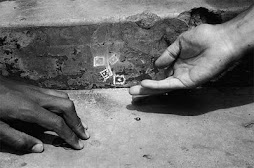same thing as before, but with virginia woolf. blue= bad. pink= good.
Original:
Virginia Woolf
The most prominent British woman writer of our century, Virginia Woolf was born in London in 1882, the youngest daughter of Sir Leslie Stephen, a leading critic and editor. Frail in health as a child, she was educated mainly at home in her father's library. In 1904 she settled in the Bloomsbury district of London, joining an intellectual circle that came to include economist John Maynard Keynes and biographer Lytton Strachey. In 1917 she and her husband, Leonard Woolf, established the Hogarth Press, publisher of her own novels and of the first translated works of Sigmund Freud. In the 1920s her novels won wide attention[s]. Woolf's techniques were then new and radical: in Mrs. Dalloway (1925) she explores characters' streams of consciousness; in Orlando (1928) her Elizabethan hero defies time and lives for centuries, changing into a woman in midlife. As an essayist and critic, Woolf is remembered especially for The Common Reader (in two series, 1925 and 1932), The Death of the Moth (1942), and A Room of One's Own (1929). In 1941, depressed by ill health and by World War II, she weighted her pockets with stones and stepped into a river.
My version:
Virgin Wolf
The most promint (that is pro-mint, as in for mint) British woman of cent, Gini Woo, was born in Loo in 18, the youngest dater of Sir Lies Pen, a lad critic and editor. Frail as a child, he was mainly a she. The Boobs of London, a circle that Jo Man Keys, grapler Lytton Achey, and her husband, Lord Woof, established the Hog Press pub. Heron novels and the first translated works of Sig Fred won wide anions. Woofs were radical. Mrs. Dallay explores streams of cons. Orlando, her Elizabethan hero, defies Tim and lives for cents, changing into a woman, ass, and critic. Woolf remembered the como rad death moth and a room of sow. I[m]pressed by ill health and old weight she stepped into a river.
Again, much better.
Tuesday, May 19, 2009
Subscribe to:
Post Comments (Atom)











No comments:
Post a Comment